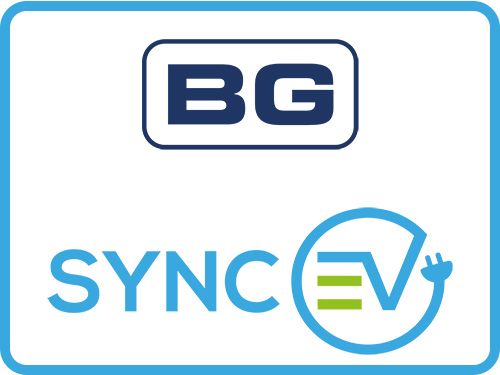Unlocking A Greener Future
 As the UK moves closer towards its zero-carbon deadline, there is continued attention on the build sector, with an onus on manufacturers to minimise the high level of emissions produced throughout the product lifecycle. In turn, purchasers can be safe in the knowledge that their buying decisions have a minimal environmental impact, with supply chain partners who share the same sustainability values.
As the UK moves closer towards its zero-carbon deadline, there is continued attention on the build sector, with an onus on manufacturers to minimise the high level of emissions produced throughout the product lifecycle. In turn, purchasers can be safe in the knowledge that their buying decisions have a minimal environmental impact, with supply chain partners who share the same sustainability values.
In line with its own global target to reach net-zero by 2050, the leading timber door manufacturer, JELD-WEN, recently embarked on an eco-focused overhaul of its Penrith door production site. This has resulted in a significant reduction in its environmental impact.
Here, Hamish White, Plant Manager at JELD-WEN’s six-acre factory site in Penrith, explains what measures are in place to support the business’ journey to net zero, and the learnings that can be drawn for other facilities looking to elevate their own sustainability strategy.

Put simply, when it comes to the climate change challenge, the stakes could not be higher, or the need more urgent.
According to the United Nations, ‘our planet is still in the emergency room’, and it has never been more important for businesses and industries of all guises to work together to accelerate the speed and delivery of their own sustainability efforts.
The good news is that we already have many of the solutions and processes needed to help slash emissions and reach net zero. It’s now about deploying them at pace, and for facilities managers, understanding the impact of a product from its origin will ensure their efforts towards achieving a minimal carbon footprint on their projects can be backed up by their supply chain.
At JELD-WEN UK, recent years have seen us implement a sustainably focused overhaul of our Penrith production site, in a bid to preserve a healthier planet. Responsible for producing two million doors a year, we have significantly reduced the site’s environmental impact by focusing on five key areas: biomass, energy, diesel, landfill and plastics.
1: Biomass
Biomass boilers are a greener source of energy than fossil fuels, using organic matter to generate power.
By using our excess supply of sustainably sourced timber as fuel, we can minimise waste, and we also replace the trees used in our products through replanting initiatives. As the CO2 emitted from biomass equals the amount absorbed over the months and years that the tree was growing, this results in a carbon-neutral process.
Furthermore, by ensuring timber used is accredited by the Forest Stewardship Council (FSC) and Programme for the Endorsement of Forest Certification (PEFC), we are able to ensure the materials are sourced ethically and responsibly.
2: Energy
New innovations in technology are paving the way to a cleaner future, which we have already utilised by:
- upgrading our plant’s extraction system;
- installing variable speed compressors;
- using LED lights with motion sensors; and
- installing new machinery with soft start inverters.
Not only has this investment massively increased our energy efficiency, leading to annual savings of over £650,000, but have resulted in an impressive drop in energy consumption by over 30 per cent, per door produced, from 2015 to 2021.
3: Diesel
It is widely known that electric is a much cleaner and more environmentally responsible alternative to diesel, and in 2018, our factory welcomed a brand-new fleet of forklift trucks, the majority of which were electric. This has, unsurprisingly, helped to achieve a sharp reduction in our diesel consumption, and we plan to completely eliminate all usage with a solely electric fleet in the very near future.
We have also identified ways to reduce haulage emissions, by reducing wasted space on pallets. In turn, this has maximised load capacity and reduced the number of annual trailer journeys on the road by 14,000 miles each year, equating to a 14-tonne reduction in annual CO2 emissions.
4: Landfill
Our Penrith site has an ambitious target of eliminating all landfill waste by 2024, and by constantly reviewing the circularity of materials since 2015, we have reported more than an 80% waste reduction, putting us firmly on track to meet this goal.
For example, where we aren’t able to re-use waste timber at the factory, it is sent off site for recycling, ensuring that it is filtered back into the supply chain and avoids landfill. This was the case for 2,740 tonnes of A-Grade wood waste last year, significantly reducing our environmental impact.
5: Plastics
Finally, we have taken major steps to reduce single-use waste by swapping plastic packaging for cardboard on the highest volume of our designs.
All glazed door packaging has been replaced with recyclable cardboard, which is FSC approved and produced from recycled materials by Smurfit Kappa.
As a result, 104,000 doors per year no longer have plastic shrink-wrap applied, meaning that 17 tonnes of plastic wrap have been immediately removed from the supply chain. In addition, we save 246,000 kWh per year in energy as the equipment used to heat seal the plastic is no longer needed - saving 57 tonnes in CO2 emissions. The focus remains on extending the scheme to our entire product range to ensure a wholly plastic-free future, which will be key to meeting customer demand.
Going… Going… Greener

The progress at our Penrith site marks ‘chapter one’ in our sustainability story as we continue to push boundaries in green manufacturing on our pathway to net zero.
For JELD-WEN, going greener isn’t so much about ensuring legislative compliance or meeting pledges, but reflects our ethical, moral duty as a leading manufacturer, ensuring our customers can be rest assured that they are investing in a responsibly produced product.
Of course, this may mean doing things differently and taking some leaps of faith, but ultimately, we believe this will result in a better, brighter planet for future generations.
Click the article to enlarge it.


























































